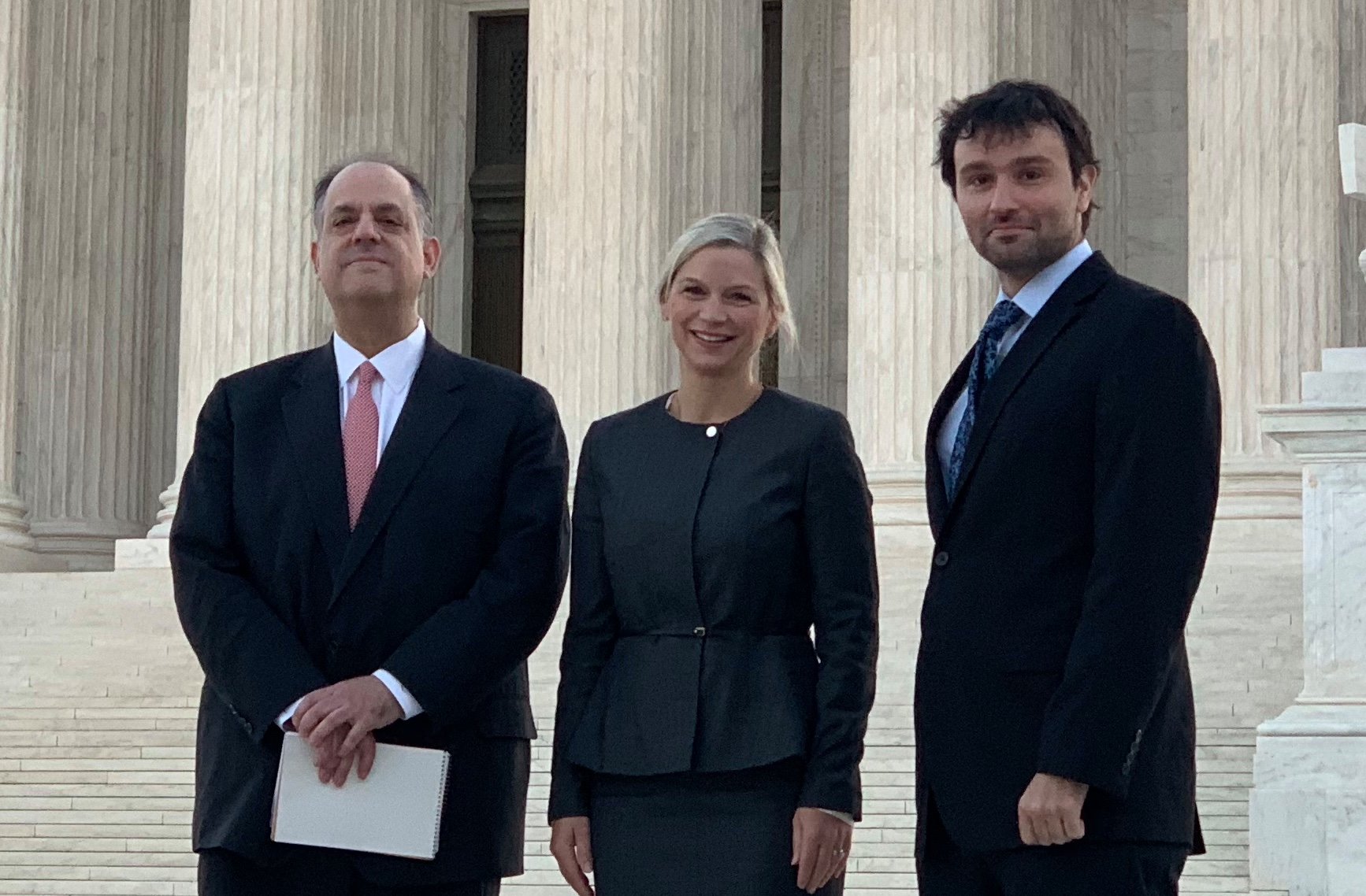 Q: What is the main question at issue in Frank v. Gaos?
Q: What is the main question at issue in Frank v. Gaos?
A: The Supreme Court will consider whether a class action settlement is fair under the rules where the plaintiffs’ attorneys direct all of the settlement relief to outside organizations instead of the class members.
Q: Who is bringing the case?
A: The petitioners are class members challenging a settlement over alleged privacy violations by Google’s search engine: Ted Frank, Director of Litigation at the Competitive Enterprise Institute, and Melissa Holyoak, senior attorney at CCAF. The original case about Google’s privacy conduct was Gaos v. Google. The current case, Frank v. Gaos, is concerned solely with whether the settlement in that case was legitimate or not, not whether Google acted appropriately in regards to customer privacy.
Q: What were the terms of the class action settlement that is being challenged?
A: Out of the $8.5 million fund created by the original Google privacy settlement, it paid nothing to class members. Instead, it paid $2.1 million to the lawyers, $1 million to administrative costs, and $5.3 million in payments to a handful of unaffiliated third-party organizations, including class counsel’s alma maters and groups Google already supported through donations.
Q: Why did money go to third parties that were not even involved in the case?
A: The judge in Gaos v. Google authorized payouts to unrelated parties under a legal doctrine known as “cy pres.” This doctrine has a long history in trusts and estates, where it permits courts to direct money from trust funds to recipients that are “as close as possible” to the beneficiaries that are somehow not available. More recently, attorneys and judges have applied it to class action settlements and increasingly abused the practice, so that rather than being a rare last-resort option, millions of dollars in relief are routinely funneled to special interests favored by the legally and politically well-connected.
Q: Why have cy pres settlements expanded so much in recent years?
A: Cy pres is a tempting way for class counsel and defendants to settle the case for their mutual benefit. Class counsel often recover attorneys’ fees based on a percentage of the overall settlement fund, and courts typically count cy presdistributions as part of the fund even though they provide the class with no direct relief. Meanwhile, defendants prefer cy pres relief because they may obtain a “reputational boost” from the charitable contributions and, when they already contribute to the cy pres recipients, may view the cy pres payment as little more than a change in accounting rather than a real legal penalty.
Q: Who else is involved with this case?
A: The Supreme Court will hear argument not only from the parties, but also from the federal government through the Office of the Solicitor General, which submitted a friend of the court brief. The Solicitor General’s brief echoes many of CCAF’s own arguments in being skeptical of the current use of cy pres awards and seeking to restrict the ability of judges to authorize them in the future. While dozens of amicus briefs were filed in the case, the Solicitor General’s Office has a track record stronger than most of making an impact on the court’s opinions.
Q: What outcome is the Center for Class Action Fairness arguing for?
A: We are asking the court to adopt a proportionality rule where class counsel is paid based on the direct relief actually received by class members. This rule will align the interests of class counsel and the class members because class counsel will be incentivized to direct settlement relief to their clients. This will resolve cy pres-only settlements like this case because class counsel will not be paid for money they funnel to unrelated third parties, but it will also address other unfair class action abuse where class counsel negotiates a settlement that creates illusory benefits for class members.
Q: Why is the Center for Class Action Fairness involved in this case?
A: The Center for Class Action Fairness, originally founded in 2009 and a part of CCAF since 2015, represents class members against unfair class action procedures and settlements. CCAF has won hundreds of millions of dollars for consumers and shareholders, and won landmark precedents that safeguard investors, courts, and the general public. Arguing Frank v. Gaos before the Supreme Court will be an important part of advancing that work.
Q: When will the case be argued?
A: The Supreme Court will hear oral argument in Frank v. Gaos on Wednesday, October 31, 2018 at 10 a.m. CCAF Director Ted Frank will argue for the class members challenging the Google settlement.
